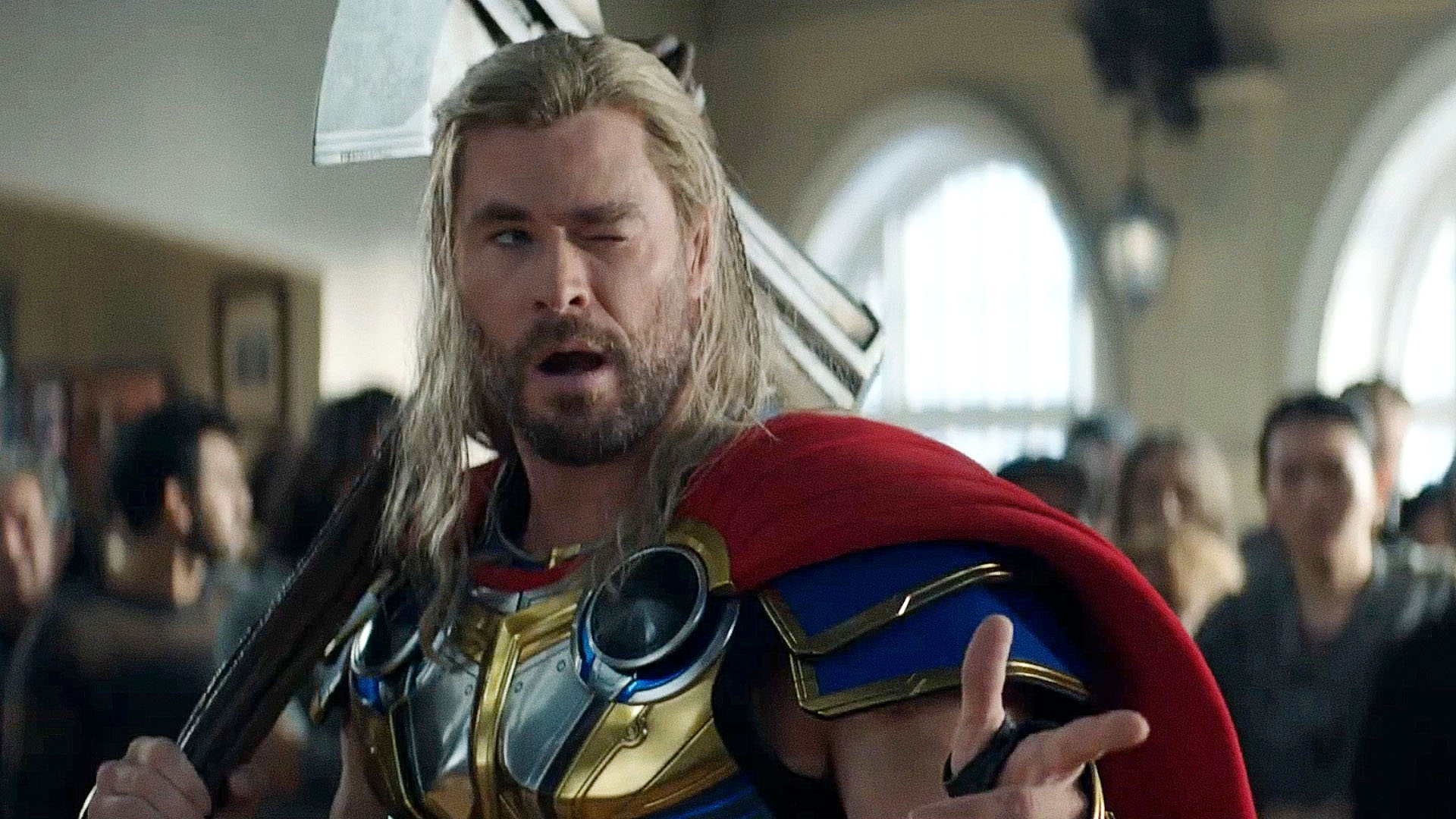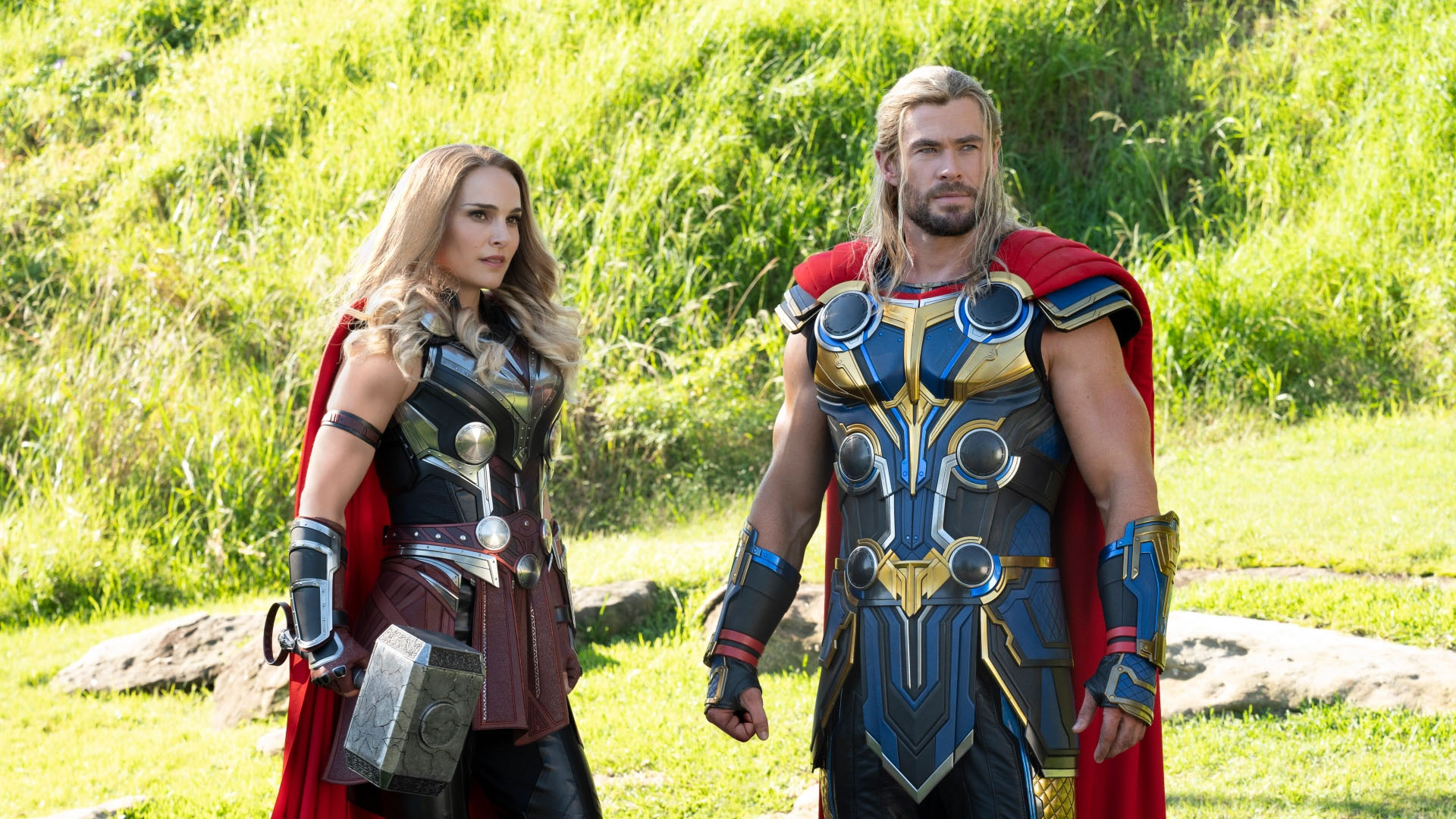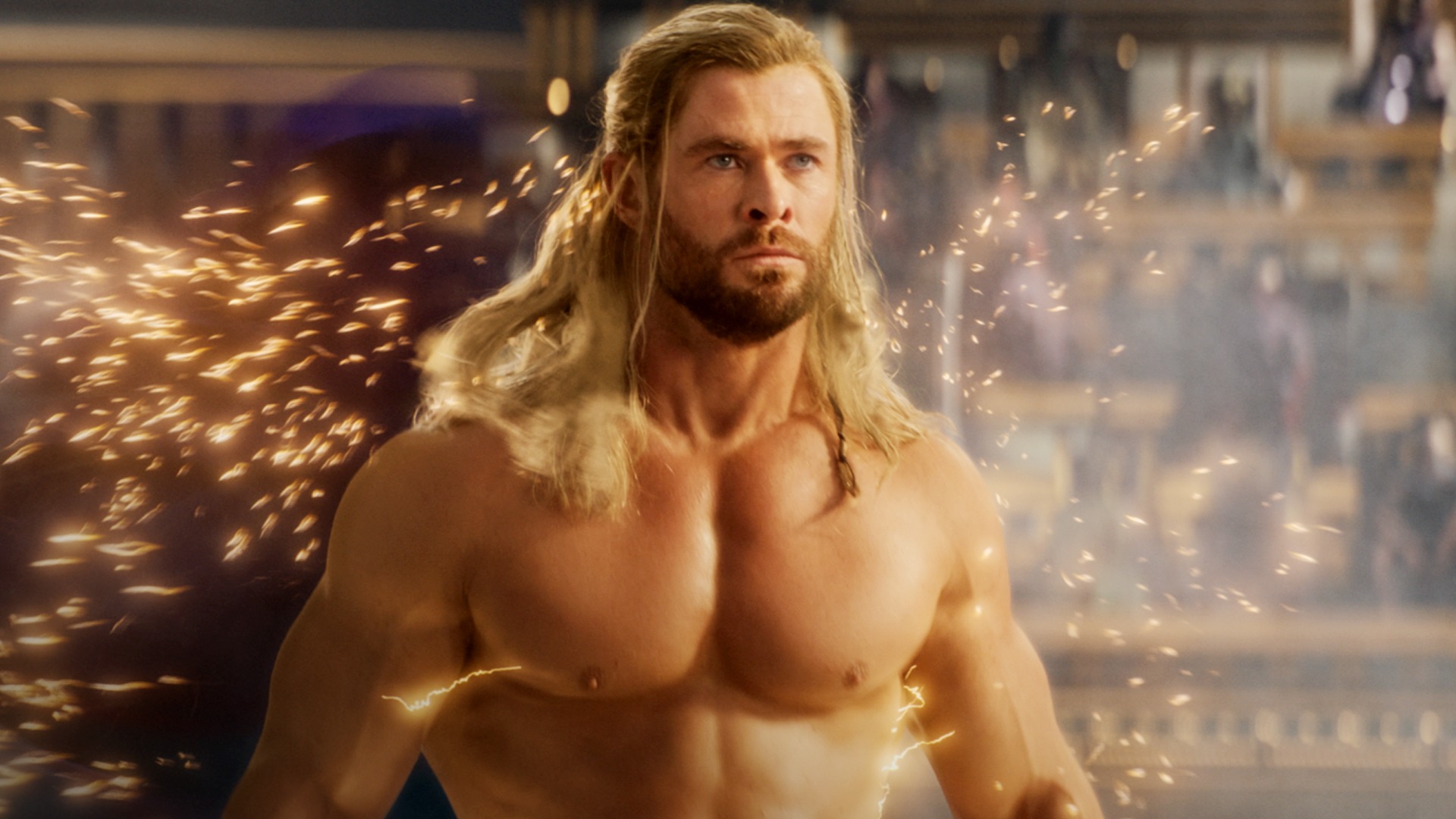Thor sequel is full of moments that sizzle but too many gags that don’t land

Taika Waititi and Chris Hemsworth are back with another Thor movie, one that that also sees Natalie Portman return to the MCU. Tony Stamp finds Thor: Love and Thunder a mixed bag.
In Thor: Love and Thunder, the gods bleed gold. It’s a cool idea that’s introduced early on, and paid off later in an action scene that has a fair bit of visual panache, and a huge deficit of logic.
The movie is full of things like this, moments that sizzle but fall apart under scrutiny. Perhaps that’s why director Taika Waititi refuses to linger on anything—for the first hour, plot points whizz by like he’s daring you to try and concentrate. The lore is so thick it’s impenetrable, but don’t worry, it doesn’t matter. In fact, nothing really seems to matter.
When Waititi delivered Ragnarok, he made a film that subverted itself at every turn, and being Taika, it was all very charming. Its main joke—puncturing the ego of a literal god—continues here, and is exploited to a punishing degree. The movie sometimes seems to be laughing at its audience for caring about this stuff at all—two early moments involve cancer and a dead child, and they’re breezed past to get to the next bit of comic improv.
Thankfully, as frustrating as that first section is, rife with gags that don’t land (and admittedly, a few that land really well), when the movie reaches its halfway point it calms the fuck down, and suddenly there are real stakes involved, and people to care about. The dramatic moments don’t connect like they do in Waititi’s earlier work, but at least they made me feel something.
As far as blockbuster entertainment goes, there’s always interesting stuff to occupy your eyeballs. A scene involving a council of gods—Thor earlier name drops Tūmatauenga—is like Waititi’s Mos Eisley Cantina moment (or maybe his Spirited Away bathhouse moment). And the cast, clearly having a good time (particularly Tessa Thompson), bring boatloads of star power and charm to proceedings.

There are elements of Natalie Portman’s role as Jane Foster you might not be expecting (unless you’ve read the comics), and when she gets to be The Mighty Thor it’s infectiously fun. But the clear standout is Christian Bale as Gorr the God Butcher, slithering around on screen and gobbling up scenery every chance he gets. In his best moments he’s genuinely terrifying, maybe more than any MCU baddie prior.
Waititi injected his first Marvel movie with themes around migration and colonialism, ideas that lingered with unexpected weight after leaving the theatre. He tries to do the same here, with repeated moments centred on children—Gorr’s daughter, the kids of Asgard, Thor and Jane’s lack of offspring—that eventually give the story a spine, but don’t pack the same heft.

I revisited the first Avengers recently, and was struck by how different it looks to subsequent MCU films. It was criticised at the time for looking like TV, and Kevin Feige and co seem to have headed even farther in that direction since, lighting everything as flatly as possible in whatever warehouse they film these things to make all that digital post-production easier (or maybe to sell TVs).
It’s certainly the case here, although Waititi does splash around lots of colour, and then removes it all to eerie effect. But the lack of light and shade reflects a growing problem. Unlike the clear stakes and dramatic weight of that first Avengers, this latest Marvel ‘phase’ contains gods, time variants, a multiverse, different dimensions… and none of it really sticks.
I get that these are trifles about superheroes punching each other. But it’s all becoming increasingly hard to invest in. Love and Thunder almost feels desperate in its attempts to entertain—fights, special effects, and jokes, jokes, jokes. But if everything’s a joke, then does any of it really matter?




















